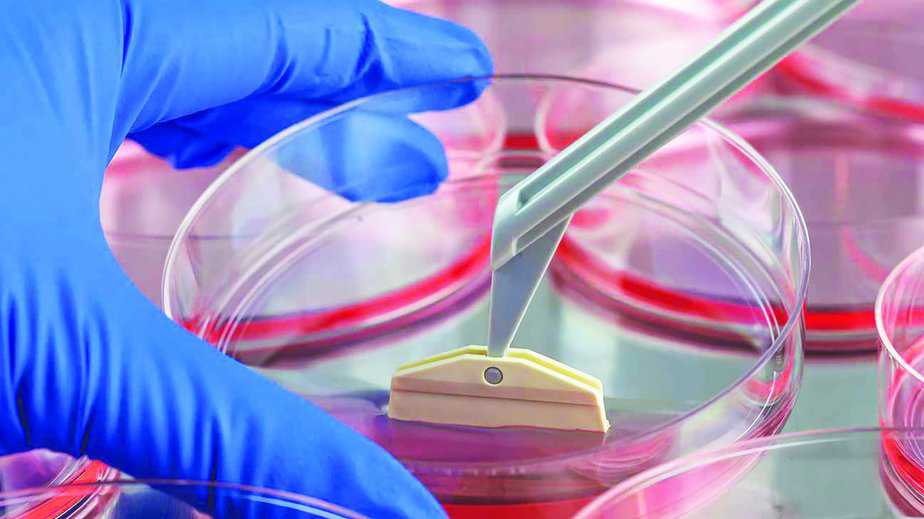
NEW TECHNIQUE: Stem cells are being used to treat genetic disorders
Since Dolly the sheep was cloned from an adult somatic cell in 1996, experiments using stem cell therapies and products to treat diseases have grown exponentially. But with great hope comes an equally great potential of misuse for exploitative stem cell treatments, that are used on patients even before they have been evaluated and proven to be safe and effective. Thus, the Union ministry of health and family welfare’s proposal to amend the Drugs and Cosmetics Act, 1940, to regulate the import, manufacture, distribution and sale of stem cells and stem cell based products is critical to prevent its potential misuse.
The most essential components of the health care are food and drugs. The recovery of ailing patients from illness is directly related to the quality of drugs consumed. The proliferation of spurious drug in India is a serious problem for the health of the people and there is an urgent need to curb it.
India has made a commendable progress in the field of medicine, surgery and the manufacture of pharmaceutical preparations but the menace of spurious drugs is endangering lives. Misuse of stem cell-based products is another area of concern. It is against this backdrop that the Union health ministry has proposed an amendment to the Drugs and Cosmetics Act that may finally bring stem cells and cell-based products under the ambit of the law.
In a recent notification, the ministry defined the category of stem cells and their derivatives that would be termed a drug. Thereby, it would have to follow the protocols mandated for any drug development for safety and efficacy before getting the drug regulator’s approval to be used or marketed. It includes products with stem cells that have been “substantially altered” to change their biological characteristics or those that have been subjected to gene editing or modification. It said, ‘stem cells and products which are substantially altered, amounting to a change in biological characteristics or those subjected to gene editing or modification will be treated as a drug and will have to seek the regulawtor’s approval before coming to the market’.
Currently, no such permission is required. Stem cells, harvested from the umbilical cord and bone marrow, have been scientifically proven to treat cancers, immunological diseases, etc. But, over the years, many doctors have started offering stem cell treatment for diseases, whose efficacy and safety are yet to be established.
The proposed draft defines stem cell and cell based products as a drug, which has been derived from processed cells by means of substantial and more than minimal manipulation with the objective of differentiation of the cell or tissue. Moreover, the draft has further explained substantial or more than minimal manipulation processing methods involves during stem cell preparation.
Stem cells are undifferentiated cells that are the body’s building blocks and can generate healthy, functioning and specialised cells to replace diseased or dysfunctional cells that cannot heal naturally. The use of autologous stem cells — where the person’s own stem cells are harvested from the bone marrow and umbilical cord and minimally manipulated before being infused back — to regenerate damaged cells, tissues and organs, will not require a regulatory nod.
Autologous stem cell is increasingly being used to boost regeneration of healthy cells, such as in the treatment of blood cancer with haematopoietic stem cells in the bone marrow, and for replacing cells destroyed by high doses of chemotherapy. Stem cells are currently being used for genetic disorders, dementia, and autism, without explaining to patients or relatives that autologous mononuclear cell transplant is not going to benefit them in any way.
The move by the government to legitimise the use of stem cell in the country has been hailed by practitioners of such therapies. “There is a huge outcry about the legality of using stem cells to treat patients when they are being used the world over. Doctors fear losing their registration. The autologous therapies need an operation theatre setting as cells are removed from bone marrow. But most reputed hospitals refuse permission,” said a surgeon, who routinely uses stem cell therapy to treat muscular dystrophy and spinal cord injuries.
Doctors and researchers believe stem cells may one day be used to make cells and tissues for therapy of many diseases, including Parkinson’s disease, Alzheimer’s disease, spinal cord injury, heart disease, diabetes and arthritis. Since stem cells can be modified into different functional adult cell types, therapies using them can potentially cure all diseases involving tissue degeneration, including heart failure, spinal cord injury (actor Christopher “Superman” Reeves was a big supporter of stem cell research), stroke, burns, type 1 diabetes, osteoarthritis, rheumatoid arthritis, muscular dystrophy, Parkinson’s disease, Huntington’s disease, Alzheimer’s and amyotrophic lateral sclerosis (ALS), among others. Thus, it’s this potential that makes it imperative to regulate and protect the sick from financial exploitation and their families from emotional devastation, experts feel. n
The likely Rs 1,000 crore sale of the Tehri Garhwal House, former royal residence on…
On the principle of 'Sarvajan Hitaya, Sarvajan Sukhaya' -- Welfare for all, Happiness for all…
With hundreds reported missing in Delhi this year, this guide explains how families can use…
The case came to light after a 35-year-old woman from Panipat alleged that she had…
During the investigation, CCTV footage helped identify the suspects, according to Delhi Police
The launch took place during the inauguration of the Delhi Police Exhibition Hall at Connaught…